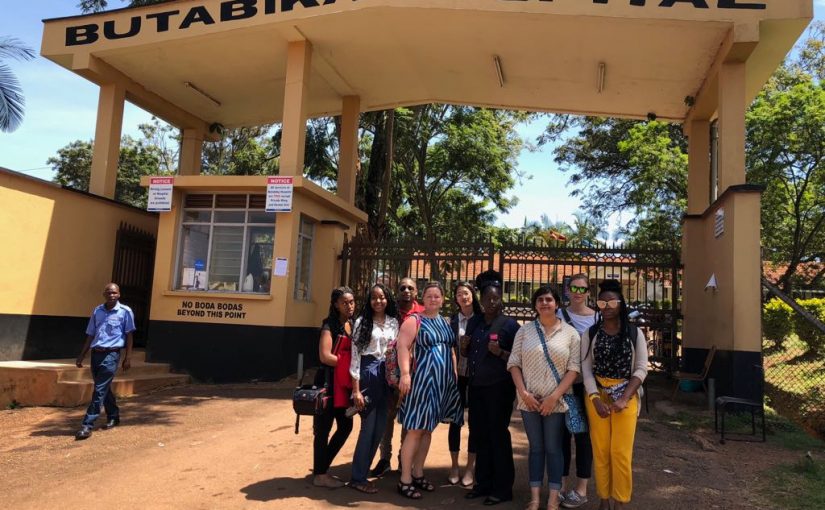When making my decision to visit Uganda, I did not know what expect. Planning for my first trip to Africa, I tried to best prepare myself, physically and mentally. After a long trip and battling jet lag, I quickly learned that the capital city of Kampala, Uganda is nothing short of pure beauty and hospitality. The study abroad program I attended is focused on alcohol and harm (taught by Prof. Monica Swahn), so I knew it was going to be interesting to study this subject in a new environment. One of the visits that really intrigued me was to Butabika Hospital. We had the pleasure of visiting the site and had the opportunity meet up with the director, Dr. Basangwa.

Established in the 1950’s, Butabika hospital aims to break the stigma of mental health by reducing the burden and increasing the access to care. Within the Ugandan population, it is estimated that approximately 30% have a mental illness but only half of those require treatment. This hospital offers specialized mental services to the population; including research, teaching, policy, and support. The facility later opened to the public for services beyond mental health treatment in order to reduce the stigma. As years went on, it added services that would provide for the community that includes alcohol and drug rehabilitation, psychiatric trauma and those with a criminal background.

We got to tour the campus and see the facilities that are provided to the patients. The wards we got to see included: children, men, private, and outpatient. Walking through the facilities, I had a lot of different emotions. First, we went into the children’s ward and it was shocking. There were patients in the designated area. But, as we entered the building, we entered a room that was lined with beds, a couple of which were filled with sleeping children. The nurse that was managing the wing took us down a hall that had single rooms, isolating certain children. After seeing this I immediate had a hundred questions; how were these children diagnosed? How is treatment implemented for each individual? Why were they separated the way they were? However, the nurse did not understand our questions because there was a language barrier.

As we continued on the tour, we then walked through the site to see the men’s ward and the private ward. The men’s ward looked something of like a prison; overpopulated with a gate that topped barbwire. As I learned in the meeting with the director, those people who have private insurance or finances have the option of staying in a private room. We eventually ended at the outpatient center where dentistry, EEG and maternal health services for pregnant women were provided. These services are provided for those who did not live in the facility but needed public service on an outpatient basis.
It is interesting to see how many people were at the Butabika hospital. It has 600 beds but constantly serves around 850 patients. This does not include the outpatients that come in for care. It was sad to learn that family involvement is very limited for a lot of patients that are residents. It was also troubling to learn that the recovery process is often harder when patients returned to their homes, even after complete treatment, due to their family’s disownment and lack of support. I, myself, am someone who deals with depression and anxiety, so I cannot imagine what it would like to not have a great support system; much less be in a country that does not acknowledge the importance of mental health care and treatment. Yes, it is still very stigmatized on a global scale, but Butabika hospital has very limited resources and funding unlike what I would be provided back in the United States.

Butabika was a huge eye-opener for me in terms of observing how mental health services are provided for the population in Uganda. It makes me appreciate the resources that I do have at home and how, though not a perfect one, our health system does give me what I need. One of the things I wished we got to see was the alcohol and drug rehabilitation ward. Our class is on alcohol and harm, so I was intrigued to see how many people were currently enrolled there, what the treatment layout was like and to see what a couple of patients could state about their experience at Butabika. Alas, we did not, but that’s fine because one’s first experience with this type of exposure can only handle so much. It was still a great experience to come to this public facility, learn about their history, see their work and get a tour of the campus. Hopefully I will get to learn more about it and possibly be involved in the future.
-Candy

thank you for sharing
thanks for sharing